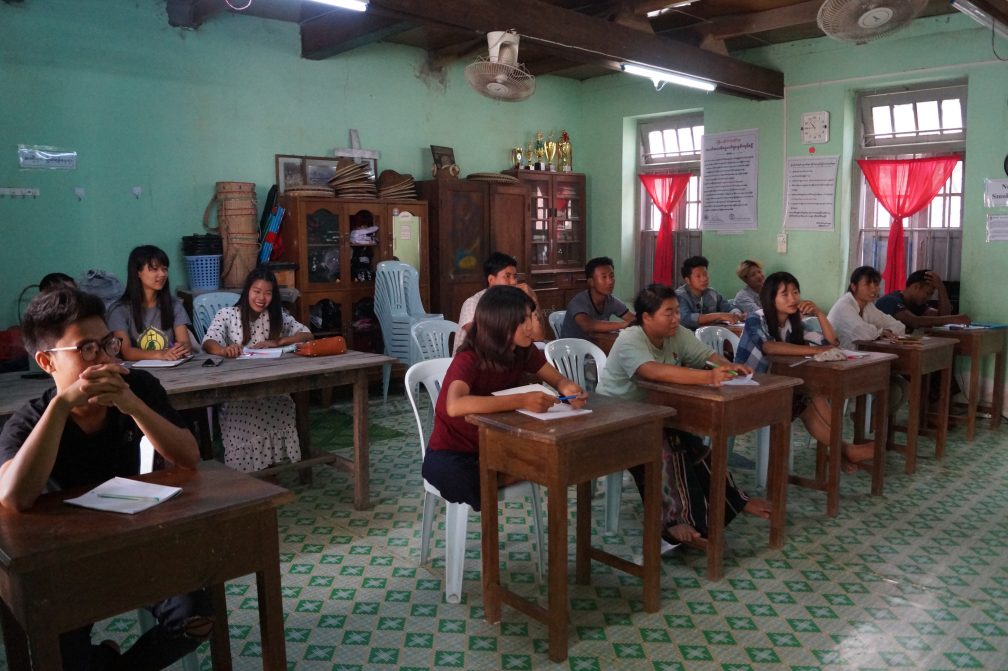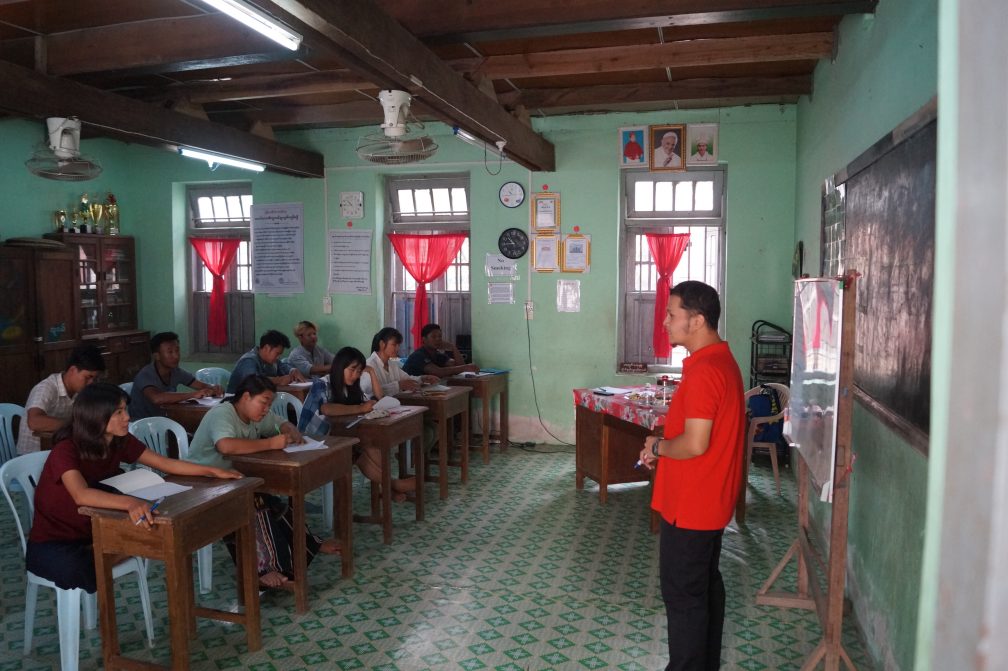Never did I think I would be assigned in Myanmar after completing my first mission assignment in Chile. I did not mention any place of assignment nor did I choose any country for my next mission. At that time, I was consumed with thoughts of another plan that I had set my mind on. However, a serious discernment during my re-entry program in the Philippines, led me to realize that I am happy; that I am fulfilled as God’s servant… As God’s Lay Missionary.
Was I asked about the mission country of my preference? I sure was. But, I let go. For me, it is not about the place. It’s about the mission. I simply let God; I let the leadership team determine which place I would best be present. Hence, on my second term as a missionary, and with an open heart, off I went to Myanmar.
To become an English teacher? Yes. We were told that there would be a big possibility that the nature of the mission would be to go hands-on in teaching this language. Although I am professionally trained to deal with machines and numbers, I positively embraced the challenge. A mission is a mission. So for a few months prior to embarking on this new life-path, I submitted myself to a focused effort of polishing my English. I thought, I needed to be proficiently equipped for the mission of teaching.
In Myanmar, I started off as a student. I religiously studied the local language not only to understand the basics but to understand the people’s culture. While studying, some young people would approach me to teach them English and would call me “Sara” which means teacher in Kachin. Unfortunately, I had to say “NO” to them. At that time, my priority was to focus solely on acquiring their local tongue. It wasn’t until after a year, after gaining a richer vocabulary in their language, that I welcomed my appointment of working with the youth. As most of the young guys wanted to learn or improve their English, I decided that language teaching would be a major part of our sessions. I taught them, all the while being conscious of their language level and their needs. They were fond of memorizing – a system of learning that
is quite different from what I would have liked them to use. I want them to learn out of love of the language. Thus, I encouraged them to enjoy the language…. to have fun in sharing their own experiences, their own stories of love, their hopes and dreams as well as their struggles and pains. This is their language practice. This is English brought alive.
This is the key and their passport for success. “I want to apply for a good-paying job.” It’s not just one boy that goes starry-eyed with this dream, but he is joined by a chorus of others. A good command of English gives them a huge advantage and this spells financial comfort for the family.
Sharing has become learning for these young dreamers. Sharing has become a venue in building confidence and faith in oneself. Through their life stories, I have come to know, appreciate, and respect each one of my learners. They each have a story to tell. Slowly but surely they began to open up. Most of them do not have the courage to share in a group—so how much more difficult is it to do so in English? Still, I encourage them to participate even in a very simple way. Many do not want to be embarrassed so they choose to be quiet. In reality though, they just need a little push, a little more affirmation to trust in themselves. I also employ multiple teaching techniques. I have to be as creative and as dynamic as I can. There are times when I shift to their local tongue to bring home a point or clarify something and be understood.
When I make mistakes, I would ask them to help correct me and they are more than willing and eager to teach me in return. In so doing, they recognise something very special in our teacher-learner/learner-teacher relationship where our roles are sometimes reversed. Yes, in my effort to be more creative, I even introduced them to “Laudato Si”. The comprehension exercise is quite challenging. It nevertheless brought an awareness to the class on how we can respond to the call to care for our common home.
Indeed, I let go and let God in choosing my mission place and God’s hand led me to Myanmar. Never did I imagine that I could teach. The past months though have shown me that I could. I taught these young people how to share in a language that is not their own. However, they taught me a hundred and one more in return. I learned to be more patient, more creative, more responsible, more dedicated to this call of teaching…and of sharing. More importantly, I learned the value to “LET GO AND LET GOD.”



